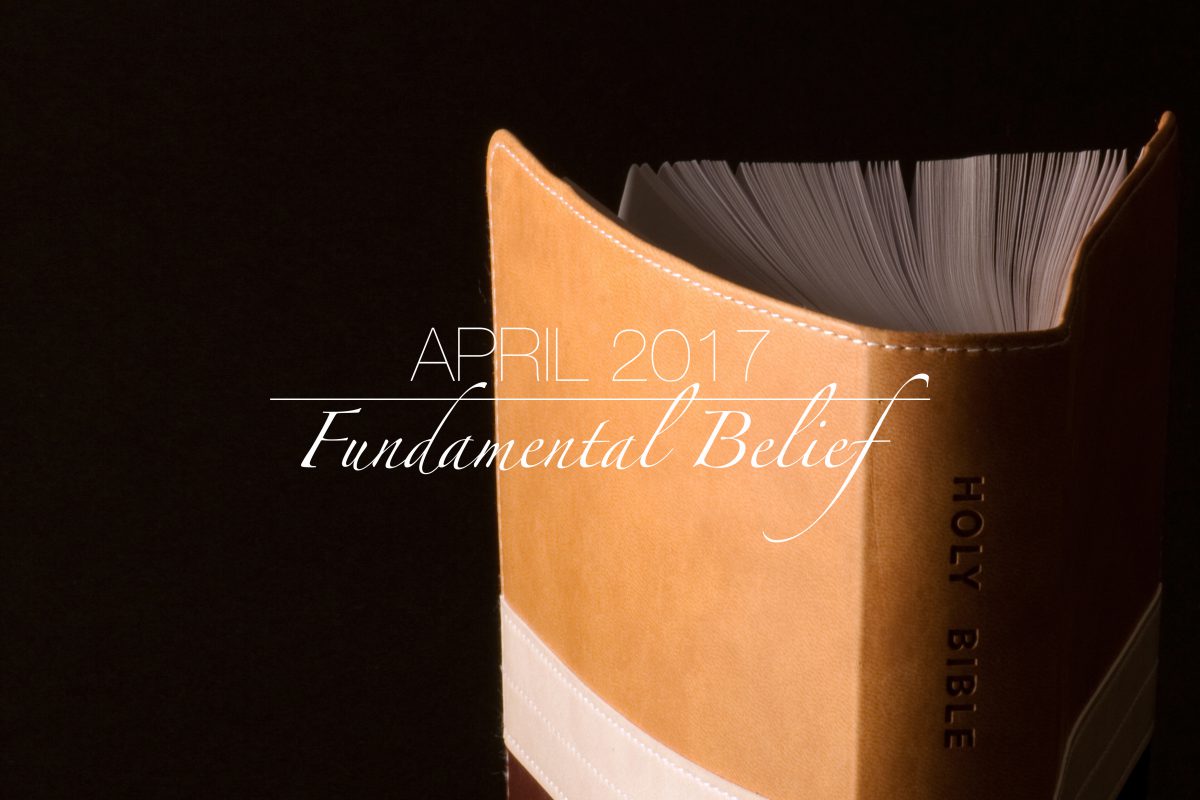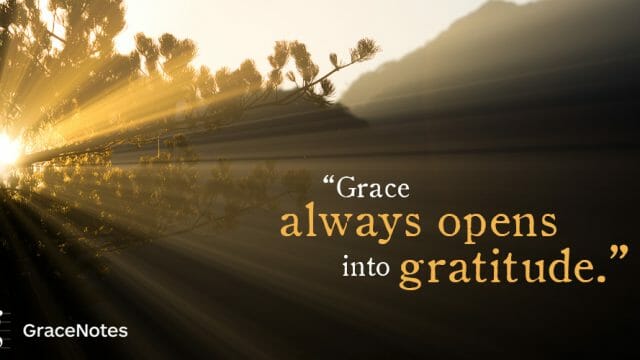We are God’s stewards, entrusted by Him with time and opportunities, abilities and possessions, and the blessings of the earth and its resources. […]

We are God’s stewards, entrusted by Him with time and opportunities, abilities and possessions, and the blessings of the earth and its resources. We are responsible to Him for their proper use. We acknowledge God’s ownership by faithful service to Him and our fellow human beings, and by returning tithe and giving offerings for the proclamation of His gospel and the support and growth of His church. Stewardship is a privilege given to us by God for nurture in love and the victory over selfishness and covetousness. Stewards rejoice in the blessings that come to others as a result of their faithfulness. (Gen. 1:26-28; 2:15; 1 Chron. 29:14; Haggai 1:3-11; Mal. 3:8-12; Matt. 23:23; Rom. 15:26, 27; 1 Cor. 9:9-14; 2 Cor. 8:1-15; 9:7.)
Which God do you believe in? And what is there in your words or conduct that suggests who He might be?
Lady Samaria didn’t know what she believed in, although she was willing to argue about it. Jesus ended the argument by telling her that while Jews knew what worship was about, she and her people had no idea (see John 4:22).
At the same time, Jesus is known to have said quite harsh things to the Jews: “Many will say to Me in that day, ‘Lord, Lord, have we not prophesied in Your name, cast out demons in Your name, and done many wonders in Your name?’ And then I will declare to them, ‘I never knew you; depart from Me, you who practice lawlessness!’ ” (Matt. 7:22, 23).
What if Jesus said that to you or me after all our hard work in evangelism, community service, and church administration? We know very well, after all the good things we have done, that we are not like other people: thieves, swindlers, unjust, adulterers, or taking peoples’ money and calling it taxes (see Luke 18:10-14)! Could Jesus still say, “I never knew you”?
The smart Athenians didn’t know Him either, as Paul discovered by studying their faith confession: “For as I was passing through and considering the objects of your worship, I even found an altar with this inscription: TO THE UNKNOWN GOD. Therefore, the One whom you worship without knowing, Him I proclaim to you” (Acts 17:23).
Paul could see that they didn’t know the true God. And his message to them holds enough good instruction that today’s worshippers might note. He would speak of the One they sensed deserved worship, though they did not know Him. Evidently, worshippers may render service to a God whom they truly do not know! Ostensibly faithful stewards may give their time and thought, their bodies and money, without a saving knowledge of the One to whom they give!
Paul to the Athenians
Paul’s words to the Athenians offer us at least four bits of instruction today, on the God who requires our stewardship, the God whom everybody ought to know. These four are inextricably bound up one into another.
To begin with, Paul treats the “one” he speaks of in the neuter gender. More than is appropriate may be made of this. Nevertheless, twice in this one verse, Paul speaks of a neuter “one,” suggesting that those who acknowledged this deity were in fact simply admiring a concept.
The Athenians are famous for the multitude of their philosophical ideas. This was one among many, showing them as good enough to include this divinity, though they had no name or character traits by which to identify him. It was still appropriate, they seemed to think, to include him with everything else. Current stewardship practice may imagine them bringing him little moneys, serving for him in Dorcas societies, and reading him eloquent prayers.
Being nice to God is good. So is the practice of accountability. Stewards must be ready to give account of their stewardship (Luke 16:2). Then when Jesus returns, we may be able to list for Him the things—good things—that we have done. Prophesying, exorcising, and other such wonderful works are surely not to the shame of anyone; nor is careful tithing or community service. How mystifying would it be, then, to show up for Jesus’ party with our lists of deeds of goodness and their corresponding ribbons and certificates, only to have Him say “Get out. I never knew you!”
Were that to happen, we would need to be prepared to respond: “But Jesus, I used to be the church treasurer, and a faithful tither; I directed choirs and served as deputy assistant vice junior something or other. I used to be nice to You!” Imagine your confusion at His demand: ‘Depart, you worker of lawlessness.’ There is no way to exaggerate either the significance of that coming encounter or the compelling importance of knowing, now, that we know Him.
Taking Up the Question
Do you know your God? Knowing Him is life eternal (John 17:3). Is He for you any more than a philosophical concept? The God Paul told Athens about didn’t need their licked envelopes or the paper stuck inside them any more than he needed matter to help him in Genesis 1: the God “who made the world and everything in it” (Acts 17:24) doesn’t borrow anything from your famously rich uncle. Everything is already His. If all I do is bow as the offering plate goes by, He will have just as much as if I had emptied into it everything I had. None of us can make Him rich. Everything we all get—life, breath, all things—originates with Him. Sometimes stuff gets to you distorted; sometimes as soon as it gets to me I ruin it. But He is still the source: “Every good gift and every perfect gift is from above, and comes down from the Father” (James 1:17).
Paul’s first truth is that the God whom he presents on the Areopagus is no mere human idea. He is real, whether we conceive of Him or not. Matter, as we know it, and life, as we live it, adequately demonstrate His reality, and confirm a second truth, the truth of His creatorship. Denying “His eternal power and Godhead” while in continuous association with His created works is choosing to be without excuse (Rom. 1:20).
On the other hand, appreciating His authority as Creator simultaneously acknowledges a third fact: that He is owner; that we and all that life is, inclusive of the gifts and service we render Him, are all already His. He owns us by virtue of the fact that He is our Creator and Inventor. When He, in the beginning, invented flora, fauna, and mineral, there was no location or authority that might have accepted His patents, for no potentially competing voice existed to claim our ownership or accuse Him of industrial poaching or copyright violation. “It is he that made us, and we are his” (Ps. 100:3, NRSV).*
A Fourth Truth
Paul’s fourth truth highlights the way our Creator and Owner God celebrates His ownership—by giving: “He gives to all life, breath, and all things” (Acts 17:25).
We do not get by accident, or receive under coercion. God does not give because human beings or angels hold a knife to his back, or brush His temples with the barrel of a weapon. He gives because it is His nature. Our stewardship, the privilege of faithful response, measurable perhaps, in tithe, yet unquantifiable in offerings of means and grateful service, is a channel through which the charms of His ways may extend the unbounded giving of our Giver God who never ceases to bless the world. n
* Bible texts credited to NRSV are from the New Revised Standard Version of the Bible, copyright © 1989 by the Division of Christian Education of the National Council of the Churches of Christ in the U.S.A. Used by permission.
Lael Caesar, associate editor of Adventist World, loves giving because His Giver God says it’s better than receiving.








